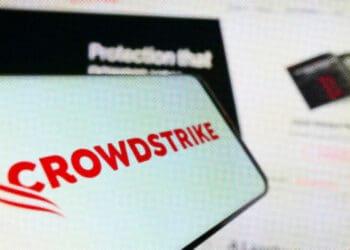New York (June 7, 2017) — Many regulatory compliance professionals, board members and C-suite executives (44.1 percent) anticipate an increase in regulatory enforcement in the next 12 months, yet more than half (55.5 percent) describe their current compliance and regulatory efforts as just foundational —neither modernized nor value-creating — according to a new Deloitte poll.
“We’re experiencing a short break from fast-paced regulatory change,” said Tom Nicolosi, Deloitte Risk & Financial Advisory Principal, Deloitte & Touche LLP. “Whether you work in a sector still evolving compliance leading practices or a highly-regulated industry accustomed to frequent regulatory requests, now is the time to consider modernizing your compliance program.”
Deloitte defines compliance modernization as a functional transformation that elevates compliance professionals; aligns compliance programs with business goals; drives efficiency using technology and process optimization; reduces human error; better leverages compliance-related data; and results in proactive and predictive insights that better inform decision-makers.
Few advancements come without challenges, of course. Headwinds expected by respondents for their organizations’ compliance modernization efforts in the year ahead included lacking technological capabilities like cognitive intelligence, risk-sensing and robotic process automation (23.8 percent); lacking processes to support modernization efforts (19.2 percent); lacking talent with required skill sets (18.6 percent); and lacking business, board and C-suite engagement (13.4 percent).
“Transforming a backward-looking, fragmented regulatory compliance program into something predictive and streamlined can be daunting,” said Nicole Sandford, Deloitte Risk & Financial Advisory Partner, Deloitte & Touche LLP. “But, leveraging things like robotic process automation to improve efficiency and advanced analytics to unearth new insights offer ‘quick wins’ that can start building momentum for compliance modernization efforts.”
Respondents said the benefits of modernizing their organization’s compliance function in the next 12 months would include the following:
- Meaningful, often predictive insights provided by compliance teams, in addition to backward-looking analysis and reports (24.9 percent);
- Improved efficiency of the compliance function and reduced costs related to it (19.4 percent);
- Cultivation of a consistent, organizationwide ethical culture that makes compliance more of a built-in behavior (19.1 percent);
- Better integration of regulatory and compliance concepts into both business strategy and existing processes (18.6 percent); and
- Reduction in fines, penalties, corrective actions or legal costs due to earlier detection of possible compliance violations (7.9 percent).
Nicolosi continued, “Start discussing how your organization’s compliance program can shift from solely value-defending to value-creating. Push for compliance to have the right stature within the organization and a seat at the strategy table. Identify and leverage technology that drives program efficiencies, helps eliminate human error and enables predictive insights from which leaders both inside and outside of compliance can benefit.”
About the Poll
On March 30, 2017, a Deloitte Dbriefs webcast titled “Modernizing compliance: Moving from value protection to value creation” polled more than 580 compliance professionals — those holding compliance (21.4 percent), internal audit (35.6 percent), risk management (17.7 percent) function positions — as well as noncompliance C-suite executives (22.6 percent) and corporate board members (2.7 percent) about efforts to modernize their organizations’ regulatory compliance programs. Respondents largely work in the financial services (45.7 percent) and consumer and industrial products (23.2 percent) industries.
About Deloitte
Deloitte provides industry-leading audit, consulting, tax and advisory services to many of the world’s most admired brands, including 80 percent of the Fortune 500 and more than 6,000 private and middle-market companies. Our people work across more than 20 industry sectors to deliver measurable and lasting results that help reinforce public trust in our capital markets, inspire clients to make their most challenging business decisions with confidence and help lead the way toward a stronger economy and a healthy society.













